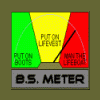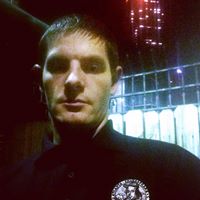I've been taking a frequent flyer about once a week lately. Really, nothing new for EMS, actually, he's not as frequent as some others, but this one has a twist. This is a legit patient, post-dialysis hypotension often resulting in fall/ataxia and dizziness. I know what you're thinking... suck it up, these happen... Personally, I don't care if I take him weekly, he's a nice guy, we have a good chat on the way in. Although he is heavy, lives on an awkward 2nd floor apartment (with no elevator, of course) so our stair chair gets a good workout, I don't mind too much because he does try to help us as much as possible. My big concern is for his own safety, he lives alone with only occasional visits from a home care nurse. We are in a Rural Area, and even a full hot response, we're 10-15 minutes out (in ideal conditions) so if something happens, help is quite a ways away. I know I've mentioned to the receiving nurse each of the 3 times I've taken him this month that he should be assessed for placement in a care facility. I'm not totally sure what all is going on behind the scenes, but I tend to get the smile and nod from the nurse, and then we get the call the day after he gets home to pick him up again. IMO, if he had even LPN care in a facility, he probably wouldn't end up in hospital at all (besides for dialysis). As far as my options, I've talked to him about it (he's not really keen on the idea himself), I've talked to the nurses and the social worker. As a sidenote, an EMT in my province was recently sued for using family contact information to discuss long-term care (in addition to having his license revoked and being fired), so family involvement from my position is not an option.
I feel I've done everything I can to try to get him the help he needs, and honestly, I'm kinda frustrated by the lack of action on the part of the rest of the system. Anybody else have ideas? Similar patients?




